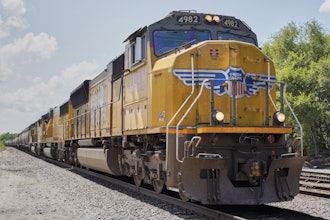A recent report projected that the cost of manufacturing in the U.S. will fall below costs in China within the next three years, in large part due to the rise of fracking.
Fortune, citing an analysis by Boston Consulting Group, reported that the average cost to produce goods is currently only 5 percent higher in the U.S. than in China, and that the cost is expected to be 2 to 3 percent lower by 2018.
Rising wages in China and increased industrial productivity in the U.S. contributed to that trend, but the report cited hydraulic fracturing as the primary reason for the shift in costs.
Read more on manufacturing opportunities in the U.S.
Increased production from shale formations led the U.S. to the top of global rankings for petroleum and natural gas production despite plummeting crude oil prices worldwide last year. As a result, the prices U.S. industrial customers pay for electricity now fall from 30 to 50 percent lower than the rates in other top exporting nations.
Falling energy prices particularly helped the metals, paper and petrochemicals sectors, which rely heavily on those fuels. A chemical trade group expects the plastics industry alone to create 127,500 jobs over the next decade due to increasing natural gas production.
The Fortune report noted that increased domestic production can also curb transportations costs, particularly with trucks fueled by natural gas.
Although falling crude costs hurt the U.S. energy sector in recent months, analysts also expect the country's fracking production costs to soon become competitive with conventional wells.
Maintaining the country's fracking advantage over other nations could also pay dividends in efforts to bring manufacturing jobs to the U.S. from overseas.
A BCG analyst noted that even the current 5 percent cost gap between the U.S. and China could persuade companies to produce domestically, thereby avoiding potential shipping delays and political complications.
Report: Fracking To Help U.S. Manufacturing Costs To Fall Below China
The report cited hydraulic fracturing as the primary reason for the shift in costs.
Jul 2, 2015
Latest in Supply Chain





















